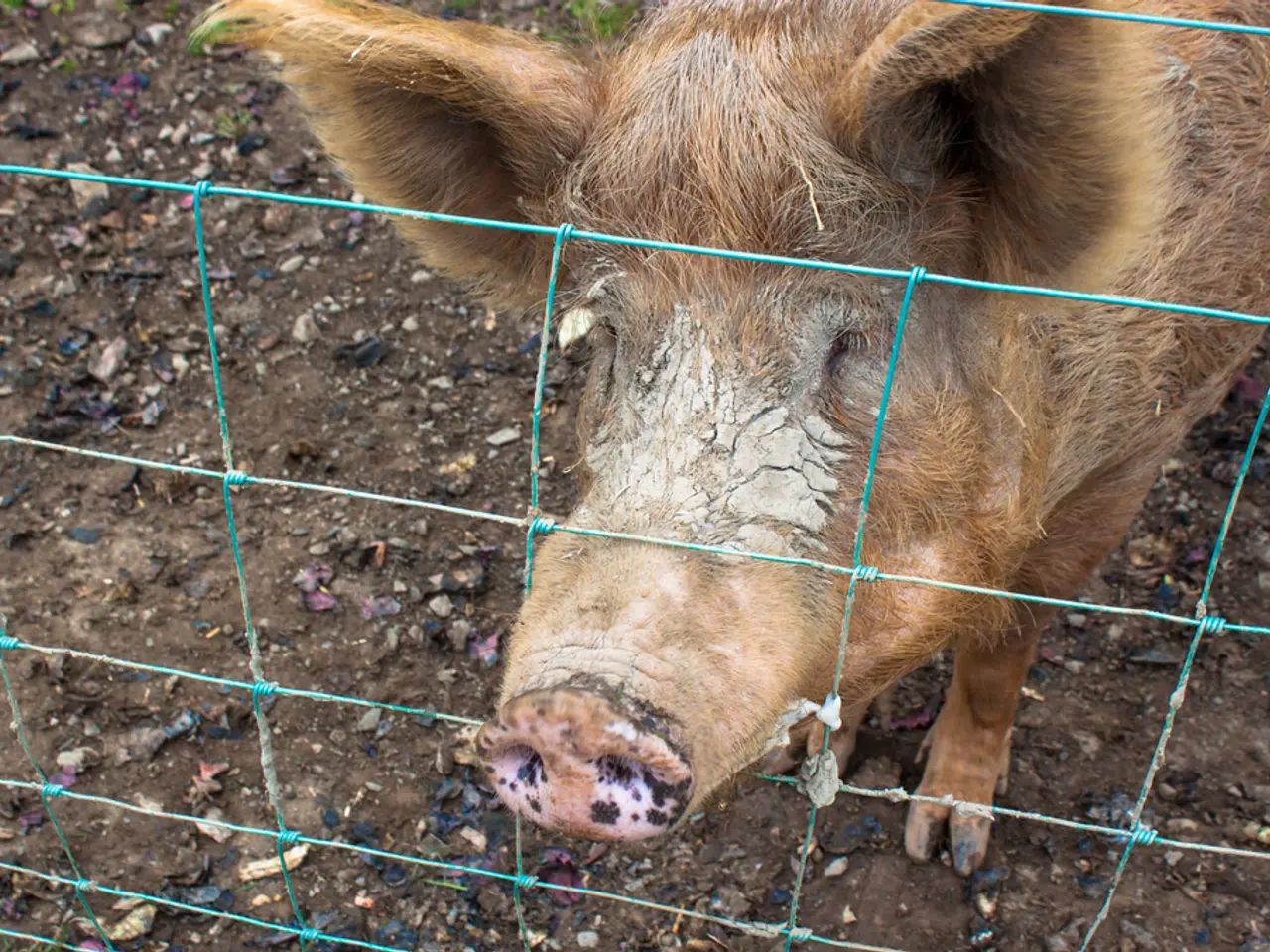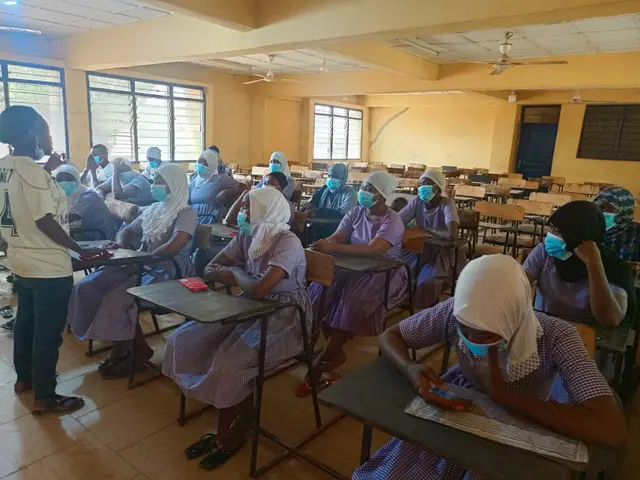Government official in Estonia seeks increased financial support from the government to confront the African swine fever outbreak.
In a bid to combat the African Swine Fever (ASF) crisis that has gripped the nation, Estonia's Minister of Regional Affairs and Agriculture, Hendrik Johannes Terras, has requested additional government funds to bolster the country's defences against the disease.
The latest measures by the Estonian government aim to contain ASF and mitigate its economic impact. These include targeted testing of suspect animals, mandatory culling of infected or suspected pigs, quarantines and movement bans around affected farms, and strict biosecurity protocols such as disinfection, fencing, and visitor controls. The Agriculture and Food Board (PTA), under the Ministry of Regional Affairs and Agriculture, leads these efforts, working closely with national laboratories, ministries, and contracted teams to conduct surveillance and enforce controls.
Key strategies implemented in 2025 include mandatory culling of entire herds in infected farms to prevent spread, movement restrictions and quarantines imposed on affected farms and surrounding areas, public advisories to avoid outbreak zones, collaboration with foreign reference laboratories to confirm test results, and proper and safe carcass disposal.
The government has emphasised that culling is currently the only scientifically recognised way to control ASF, given the virus's long-lasting infectiousness in the environment. Delays in culling could breach EU rules, leading to severe trade restrictions affecting the entire Estonian pork sector.
In response to protests over culling decisions, authorities have used measures like entry bans to prevent gatherings near infected farms to ensure biosecurity.
Estonia's strategy focuses on rapid detection, swift culling, strict biosecurity, movement controls, and international cooperation to contain ASF outbreaks and protect the agricultural economy.
Terras has initiated a budget analysis to find savings and redirect funds towards ASF combat efforts. The funds will be used for compensating losses, strengthening biosecure measures, and preserving wild boar meat for humanitarian aid to Ukraine. The minister is also working to optimize internal resources to reinforce biosecurity.
Improving biosecurity on pig farms and in hunting is crucial to prevent further spread of ASF, as the wild boar population remains a key risk factor. A meeting with sector representatives and relevant authorities has been scheduled for Wednesday to discuss solutions.
The minister considers the ASF crisis a nationwide issue requiring close cooperation and collective effort from all government agencies. The crisis is not limited to one ministry or sector, but involves the entire nation. Pork is a significant part of the Estonian diet, and large farm outbreaks pose a severe threat to the entire agricultural sector and national food security.
[1] PTA press release: https://www.pra.ee/et/aktuaalne/aktuaalne-uudised/asf-vastustamine-2025-aastal [2] ERR News: https://err.ee/1110583/asf-vastustamine-kohandab-kohustuslikud-toimingud-kodus-ja-vastasema-kui-pigipidu-kaupunikut-ja-kodus-kaubandus [3] Postimees News: https://www.postimees.ee/11664556/asf-vastustamine-kohandab-kohustuslikud-toimingud-kodus-ja-vastasema-kui-pigipidu-kaupunikut-ja-kodus-kaubandus [4] EU Regulation on ASF: https://eur-lex.europa.eu/legal-content/EN/TXT/?uri=CELEX%3A32014R1131
Read also:
- Impact of Alcohol Consumption During Pregnancy: Consequences and Further Details
- The cause behind increased urination after alcohol consumption is explained here.
- Toe joint arthritis: Signs, triggers, and further details
- West Nile Virus found in Kentucky for the first time; residents advised to take protective measures







